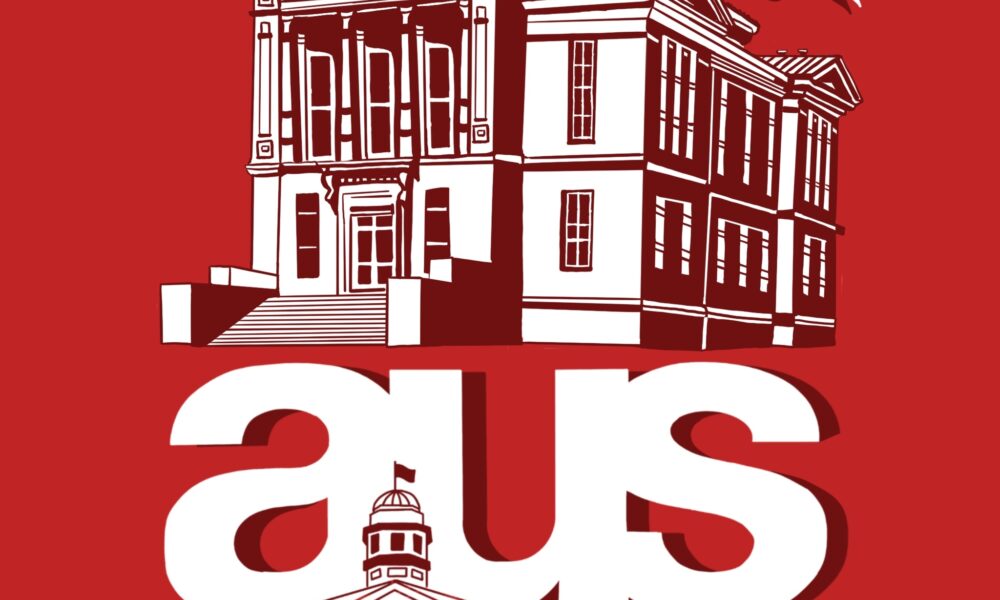Arts students headed to the virtual polls from Feb. 21 to 25 for the Arts Undergraduate Society (AUS) Winter 2022 General Elections, voting on next year’s AUS executive council, as well as the arts representatives to SSMU and the McGill Senate. A referendum on constitutional amendments and fee renewals was also held over the same period.
The 2022-2023 AUS executive council will comprise of Ghania Javed as president; Charlotte Gurung as vice-president (VP) Finance; Annie Costello as VP Social; Nicklas Rieck as VP Academic; AyeCham Myayh Pan Mort Aung as VP External; Britney Vu as VP Communications; and a VP Internal to be appointed by the outgoing council, per election bylaws. Javed, U2 Arts, won the presidency by a paper-thin margin of 0.6 per cent—the difference of four voters proving decisive amidst 114 (12.9 per cent) abstentions.
President-elect Javed says awareness and transparency will be a core tenet of her tenure.
“Raising awareness of the services and key infrastructures that student leadership positions and student government offers to students is important,” Javed said. “I look forward to increasing transparency and approachability within the AUS and establishing initiatives that will leave a lasting impact on students.”
The voting period began with a technical stumble that nullified ballots cast within the first 15 to 20 minutes. Current AUS president Adin Chan, U3 Arts, explained that the ballot rerun was because the pen sketches—summaries of candidates’ main campaign promises—were missing from the first ballot.
“This is really important because in an electorate of 8,000 people, the Facebook events and posters can only be seen by so many,” Chan said in an interview with The McGill Tribune. “The decision was made to cancel that ballot within 15 to 20 minutes of the poll being open—a very low number of people had voted—and make sure the pen sketches were incorporated. This makes it a fairer election, and people are more informed when they vote.”
As a result of the first poll’s annulment, eligible voters received upwards of six emails on Feb. 21, including error messages and new voting reminders, on top of the original communications. Chan explained that while excessive campus listservs and emails can sow irritation among students, they are one of the only channels student government can use to share information and resources about its services.
“We have these two competing things that people are upset about: One is that they don’t know what’s happening, and two is that they get too many emails,” Chan said. “It is sort of a multi-layered problem about student engagement while also being respectful of people’s inboxes.”
Student participation has been in steep decline over the past few years. AUS executive elections in 2017, 2018, and 2019 saw approximately 20 per cent of the electorate participating, a number that dropped to 13 per cent in 2020 and 2021. This year, it hit a record low of 10.2 per cent. Moreover, four out of the seven available executive council seats were uncontested, and there were no candidates for VP Internal. Charlotte Gurung, U2 Arts and incoming VP Finance, said the widespread apathy is of major concern.
“Students have become disillusioned with student government, particularly in light of issues regarding sexism, racism, and toxic work culture in student governments,” Gurung said. “I believe many students are hesitant to get involved. Having uncontested positions is reflective of much larger issues, [and are also] detrimental to democratic process and genuine representation.”
Chan agreed, adding that he hopes that the incoming AUS representatives will rise to the challenge. Although two years of online school have deprived current AUS executives of an empirical foundation for day-to-day in-person functions, the team was able to bring back offline elements and accomplish multiple projects. This year’s council renegotiated their Memorandum of Agreement (MoA) with McGill, launched an AUS store, redesigned the website, and amended bylaws to make governing documents more legible and accessible.
“There is an impression amongst the student body that faculty associations or student government is a place where people come to bicker and enter scandals,” Chan said. “That stereotype in people’s minds does impact turnout, it does impact people’s association with student government. But I would challenge and say that there’s more to it than that [….] I think this year has shown that a team can overcome challenges and really deliver a strong service. I’m really happy with the momentum we can pass on.”








